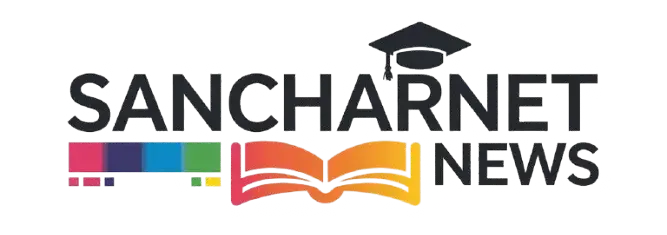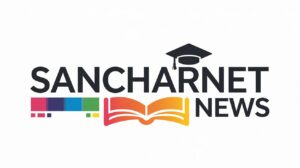Canadian PR Express Entry Update: For many foreign nationals dreaming of Canadian permanent residency (PR), receiving an Invitation to Apply (ITA) through the Express Entry system is a major milestone. While recent updates to programs like the Parents and Grandparents Program (PGP) and the Super Visa health insurance requirement have grabbed headlines, many are unaware that foreign work experience can be a game-changing factor in enhancing their Comprehensive Ranking System (CRS) score.
In this guide, we’ll explore how foreign work experience can significantly boost your CRS score, helping you stand out in Express Entry draws and improve your chances of securing Canadian PR.
Canadian PR Express Entry Update
| Key Highlights | Foreign Work Experience for Canadian PR |
|---|---|
| Express Entry System | Now values diverse international experience |
| IRCC Updates | Recent changes affecting foreign work experience evaluation |
| NOC 2021 Framework | New occupation classification system impacts eligibility |
| Points Allocation | How foreign work experience translates to CRS points |
| Regional Programs | Alternative pathways utilizing international experience |
| Documentation Requirements | Proof needed to validate foreign employment |
| Strategic Planning | Timeline considerations for experience acquisition |
| Skill Transferability | How different occupations and skills are evaluated |
Canadian Permanent Residency Express Entry Update
The landscape of Canadian immigration continues to evolve in 2025, with the Express Entry system maintaining its position as the primary pathway for skilled workers seeking permanent residence. For prospective immigrants, understanding how to leverage foreign work experience has become increasingly crucial in a competitive selection environment. Recent updates to immigration policies have refined how international work experience is evaluated, creating both new opportunities and challenges for applicants.
This comprehensive guide explores the current state of foreign work experience recognition within Canada’s Express Entry system, practical approaches to gaining qualifying experience, and strategic considerations for maximizing your immigration prospects. Whether you’re just beginning to plan your Canadian immigration journey or looking to optimize an existing profile, understanding these dynamics can significantly impact your success.
Singapore $3267 Workfare Income Supplement April 2025: Are you Eligible?
$697 Direct Deposit Checks 2025: Check Payment Details, Eligibility & Application Process
What is the Comprehensive Ranking System (CRS)?
The CRS is a points-based system used by Immigration, Refugees and Citizenship Canada (IRCC) to rank candidates in the Express Entry pool. It evaluates key factors such as:
- Age
- Education
- Language proficiency
- Canadian and foreign work experience
- Job offers
- Provincial nominations
The maximum CRS score is 1,200 points. While some aspects like age are unchangeable, other areas—such as language skills, education, and especially foreign work experience—offer significant opportunities to increase your score.
Why Foreign Work Experience is a Hidden CRS Boost?
One of the most underused strategies to increase your CRS score is by gaining additional skilled work experience outside Canada. Returning to your home country and working in a TEER 0–3 job can be a powerful move to improve your profile.
CRS Points for Foreign Work Experience
| Years of Experience | Points (With Strong Language or Canadian Experience) |
| 1 year | Up to 13 points |
| 2 years | Up to 25 points |
| 3+ years | Up to 50 points |
Foreign work experience is evaluated under the Skill Transferability Factors, and when combined with Canadian work experience or high language test scores, the point increase can be substantial.
Key Requirements for Claiming Foreign Work Experience Points
To qualify for CRS points with foreign experience, ensure you meet these criteria:
- Job must be skilled (TEER 0, 1, 2, or 3)
- Minimum one year of continuous, full-time work
- Gained within the last 10 years
- Supported by valid reference letters and documentation
The experience is even more valuable when combined with Canadian work history or language scores of CLB 9 or higher.
Documenting Foreign Work Experience Effectively
Proper documentation of foreign work experience is critical to successful Express Entry applications.
Ontario Trillium Benefit 2025: Check Payment Schedule and Amount
$250 One-Time Payment for Singapore Civil Servants: Check Payment Dates, Eligibility and All Details
Essential Documentation Components
A comprehensive evidence package for foreign work experience typically includes:
- Detailed reference letters on company letterhead with specific job duties
- Employment contracts showing terms and conditions
- Pay statements demonstrating continuous employment
- Tax documentation from foreign jurisdiction
- Social security/pension contributions where applicable
- Work permits or authorizations for non-citizen employment
Creating a robust documentation portfolio from the beginning of employment is significantly easier than attempting to reconstruct records retrospectively.
Addressing Regional Documentation Challenges
Documentation practices vary globally, requiring adaptive approaches:
- Regions with informal employment practices: supplementary evidence strategies
- Countries with different tax documentation systems: alternative verification methods
- Areas with limited digital records: authentication of physical documents
- Regions with known documentation concerns: third-party validations
Understanding these regional variations helps applicants develop proactive documentation strategies aligned with IRCC expectations for their specific circumstances.
Translation and Authentication Requirements
For non-English/French documentation:
- Certified translations required for all documents
- Translator attestation with professional credentials
- Original language documents must accompany translations
- Authentication processes for certain jurisdictions
These requirements add complexity and cost to the documentation process, necessitating advance planning and budgeting for comprehensive preparation.
Maximize Your CRS with Language Proficiency
Language ability can contribute up to 160 CRS points when applying alone. Whether you’re in or outside Canada, improving your IELTS, CELPIP, or TEF scores can make a massive impact.
Benefits of Language Score Improvement:
- Moving from CLB 9 to CLB 10 can yield an extra 20–30 points
- French language skills offer up to 50 additional CRS points
- Stronger language scores unlock Skill Transferability bonuses
Tip: Use your time abroad to study for language tests or enroll in preparation courses.
Elevate Your CRS with Additional Education
Another impactful way to increase your CRS score is by enhancing your academic credentials. Education can earn you up to:
- 150 CRS points (without a spouse)
- 140 CRS points (with a spouse)
Completing another degree, diploma, or certificate—even outside Canada—can raise your profile, especially when paired with a recognized Educational Credential Assessment (ECA).
Once submitted, your Express Entry profile is valid for 12 months. Even if you’re currently outside Canada, you can continue to improve your profile and re-enter the pool stronger.
Conclusion
Foreign work experience remains a valuable component of successful Canadian immigration strategies, requiring thoughtful planning and meticulous documentation. The evolving nature of Canada’s occupation classification system and points allocation mechanisms necessitates ongoing attention to policy updates and labor market trends.
For prospective immigrants, the most effective approach combines:
- Strategic career planning aligned with Canadian priorities
- Meticulous documentation practices from day one of employment
- Continuous skills development in transferable competencies
- Regular reassessment of immigration options and pathways
- Professional guidance for complex situations
By approaching foreign work experience as both a career development opportunity and an immigration asset, candidates can maximize their prospects for successful Canadian permanent residence while building valuable professional capabilities.
Understanding the nuanced ways in which international experience translates into Canadian immigration advantage allows for informed decision-making throughout the immigration journey. With proper planning and documentation, foreign work experience becomes not just a stepping stone toward Canadian permanent residence, but a valuable foundation for successful integration into the Canadian labor market and society.







